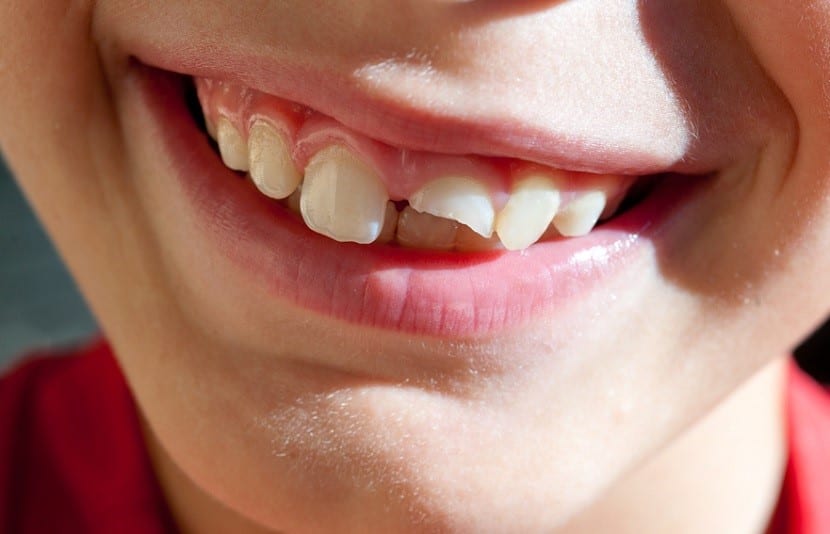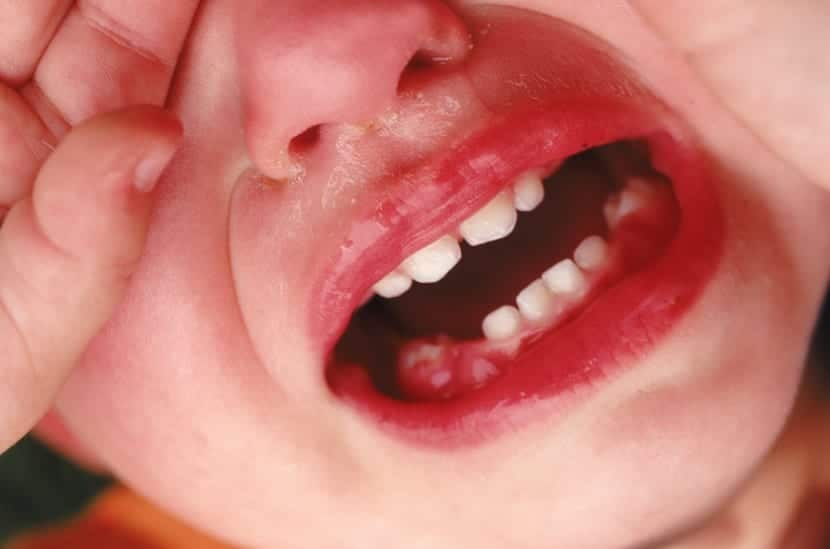
Although it seems unlikely, children may have dental disease from a very young age. It is something very common, to think that because they are small or because they still have baby teeth, children do not need dental care. And this is a very common mistake that can be avoided with just a few basic care. Dental hygiene should be part of children's routines, thus, diseases and problems can be avoided in the future.
When it comes to children, 3 problems are those that tend to occur most frequently. Some of these problems cannot be avoided with good habits, however, taking care of oral health should begin in childhood. We are going to review what these 3 main problems are, and what parents can do to avoid them.
Cavities
Cavities can develop at almost any age, in fact, there is the so-called "bottle tooth decay." These cavities usually appear as a result of the intake of foods rich in sugars such as milk, fruit juices or sugary drinks. When cavities appear in children, long-term consequences can be significant.
These kinds of dental problems cause pain and deterioration of the part, which may mean that extraction is necessary. This in children who still do not have their final teeth, can lead to other types of problems such as occlusion or dental position.
The way to avoid cavities is through good dental hygiene habits. It is important to introduce teeth cleaning to children from a very young age. Using the adequate tools for each age, you will be able to keep children's teeth in correct condition. In addition, it is important to carry out periodic reviews, in this way, professionals will be able to detect any problem in time.
Bumps in the mouth, dental trauma

It is something that usually happens very frequently, children tend to fall very frequently. When they are young, children do not have the reflex to protect their faces when they are going to fall, so that on many occasions, they hit the ground with their mouths. This can cause dental trauma with varying degrees of severity. If the blow is very strong and the child loses the baby tooth, a reimplantation is not usually performed.
However, it is important go to the specialist so they can check if the piece has fallen or if, on the contrary, it has become lodged in the bone. In this case, the tooth is not usually reimplanted because the final tooth is usually underneath. What specialists do is periodically check that the blow has not affected the final piece in any way.
But it can also happen that the child loses the final tooth, in this case, what you should do is keep the tooth in physiological serum or, failing that, in milk. You will need to take your child to the dentist as soon as possible, so they can reimplant your own tooth as soon as possible.
If your son or daughter falls and damages their mouth, you should go to your dentist so that he can assess the blow. Clean the area well with water and if there is bleeding, apply pressure to reduce it.
Bad dental occlusion
Dental occlusion refers to the shape and relationship between the teeth when the jaw is in a state of rest. In this case, the malocclusion means the bite is not aligned properly, as a consequence of some alteration in the position of the teeth.
This problem can cause that in the long run, they appear other major and more serious dental problems. So it is essential to detect it in time to be able to correct it. In the case of children, the probability of correcting the bite is much higher and with a greater chance of success.

In addition to these 3 problems that are the most frequent in children, poor dental hygiene can lead to other types of diseases and more serious problems in the gum. Plaque buildup can cause problems as serious as periodontal disease, including gingivitis and periodontitis.